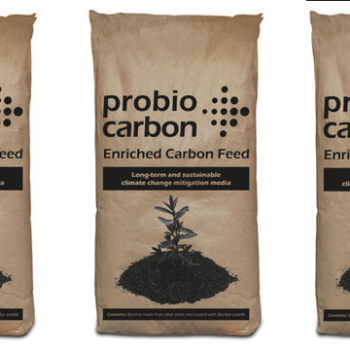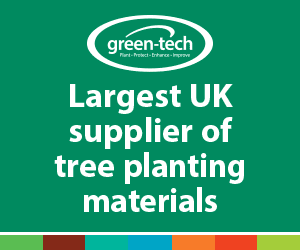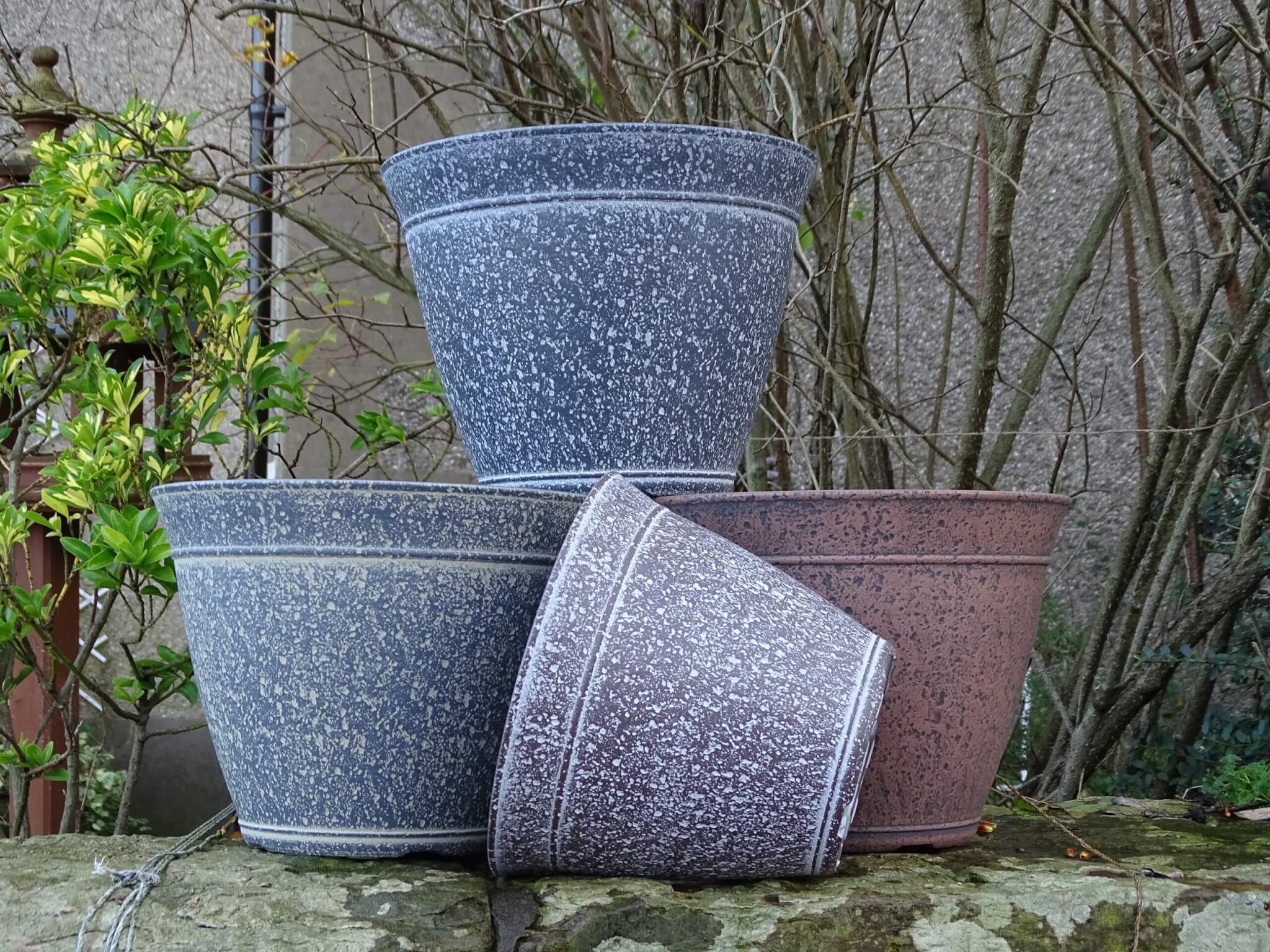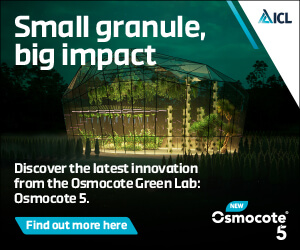Is plant growth promoting bacteria the future of horticulture?

Dr Karen O’Hanlon and Dr Munoo Prasad explore the potential of Biochar in growing media
9 August 2021
Biochar is a carbonaceous product obtained by the pyrolysis of organic materials. Pyrolysis uses high temperatures to break down biomass or waste in an oxygen-free environment.
Nowadays, the pyrolysis process and Biochar are being studied as a treatment technology to convert organic wastes and by-products into organic products for use in agriculture. The interest and use of Biochar is inspired by terra preta de indio (Amazonian black earth) from the pre-Columbian civilization times, which were characterised by remarkable soil fertility.
More recently Biochar has been promoted as;
- As a form of carbon sequestration and storage
- For its potential benefits for bioenergy production (e.g., syngas, bio-oil and heat)
- For use in soils including as a component of growing media to enhance crop productivity
- To reduce nitrate leaching through nitrate and phosphate capture
- To adsorb contaminants, such as arsenic and copper from soils
- As an animal feed
- For the reduction of odour and ammonia from slurry
- To reduce trace-gas emissions from soils (nitrous oxide and methane)
Importantly, from a climate perspective, Biochar is very persistent in the environment, and so its application to soils can remove carbon dioxide from the atmosphere for long periods of time. Thus, there are exciting possibilities in using Biochar to mitigate climate change by carbon sequestration or waste management.
Biochar also has great potential for the waste-processing industry as it allows for the recovery of waste (e.g. garden waste and forestry waste) as a potentially useful by-product. Other wastes (e.g. manure and sludge are not suitable if the Biochar is destined for use as a component of a growing media due to high electrical conductivity).
Biochar in growing media
Most of the research on the use of Biochar in growing media is aimed towards its application as an alternative to environmentally unfriendly substrates such as peat, vermiculite and perlite. These studies (including trials in Ireland) have shown that Biochar:
- Reduced nitrogen and phosphorus leaching
- The improved water efficiency of growing media
- Improved plant fresh weight and root development
- The improvement of disease resistance; and
- Offsetting or reversing of carbon footprints
Horticulture in temperate climate zones is energy-intensive and the use of peat as the main ingredient in substrates releases additional GHG emissions during mining and processing. Increasingly restrictive legislation and wetland ecosystem destruction, through its extraction, will limit peat use. Nowadays in order to attain sustainability in potted plant production, producers are opting for peat alternatives, such as Biochar, that provide good performance, are readily available, inexpensive and environmentally friendly.
Lab-scale data on Biochar carbon recalcitrance compared to peat indicate that spent Biochar-based substrates in the soil are a highly effective carbon storage tool (~80% vs. 40% respectively). The combination of bioenergy replacing fossil energy, Biochar replacing peat in the substrate and long term storage of the spent Biochar in soil all contribute substantially to GHG reductions.
In order to make Biochar an effective horticultural replacement for peat, it is recommended that Biochar feedstock be standardised as well as the pyrolysis process (temperature and residence time as this affects surface area) so that growers can rely on consistent and reproducible Biochar to get the desired effect.
Large scale change-over to Biochar will not occur unless there are financial incentives from government (Carbon Credits) or market incentives.
Enriched Biochar
A further enhancement to Biochar is possible due to its large surface area which acts as a natural environment for beneficial bacteria and fungi. The inclusion of plant growth-promoting bacteria (PGPB), most notably the spore former Bacillus subtilis, has the following additional benefits:
- It increases the uptake of minerals into the plant O it promotes plant growth
- It modulates plant growth hormone levels
- It produces siderophores, which make iron available to the plant
- It increases systemic resistance to disease (including Fusarium, Rhizoctonia, Phythium, Botrytis and many more pathogens); and
- It acts as a food source for plants and beneficial fungi at cell death stage
Nitrogen fixing organisms such as Azotobacter and rhizobia produce bioavailable nitrogen for plants. The sponge-like characteristics of biochar work in tandem with these organisms by helping to trap the nitrites and nitrates in the soil. This results in less run-off and the improved retention assists the nitrification and de-nitrification processes.
The symbiosis between plant-fungi-bacteria within the environs of the biochar ultimately leads to a reduction in the requirements for pesticide and fertiliser usage for growers.
Biochar production in Ireland
The Irish Biochar Co-op has been involved in developing and promoting the Biochar sector in Ireland for a number of years with a report produced in 2015 called “PBx2, Pyrolysis of Biomass for Power and Biochar” this report was produced with collaboration from University of Limerick and the Ithaka Institute in Switzerland. Co-op members have also been responsible for the developing of a European Innovation Partnership Agri project called Biomass2Bochar which is currently building a mobile Biochar production unit for use on farms.
The All Ireland Biochar and Activated Carbon Conference was held in October 2018 as part of the trans-national Interreg funded North-West Europe project known as RE-DIRECT. The Irish Bioenergy Association and the Western Development Commission are both partners in the project which aims to develop indigenous Biochar and activated carbon production from low value, waste or residual biomass sources. The event saw stakeholders from the research, farming, local government and business communities come together to discuss the development of the sector in Ireland.
DR KAREN O’HANLON is the founder of Probio Carbon. She has co-ordinated field trials on plant growth promoting bacteria across Europe and worked as an Ecotoxicologist in the Department of Agriculture. Contact details: info@probiocarbon.ie Telephone: 087- 9816569
DR MUNOO PRASAD was a member of the Irish Committee for The European Biochar Research Network & COST Action TD11. He was also a member of the Scientific Committee EU Horizon 2020 Carbolex Project based in the UK Biochar Research Centre, University of Edinburgh, Scotland



 Print
Print








Fans 0
Followers